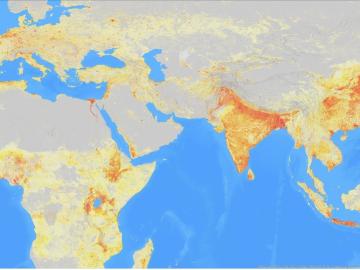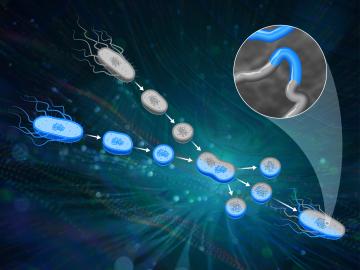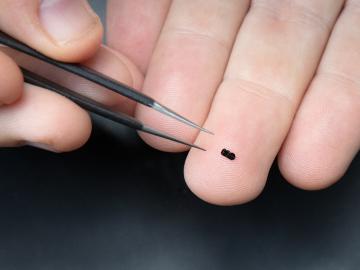
Filter News
Area of Research
- (-) Biological Systems (1)
- (-) Materials (17)
- (-) National Security (8)
- Biology and Environment (41)
- Computational Biology (1)
- Energy Science (21)
- Fusion and Fission (2)
- Materials for Computing (2)
- Neutron Science (9)
- Nuclear Science and Technology (2)
- Quantum information Science (2)
- Supercomputing (34)
News Topics
- (-) Big Data (5)
- (-) Bioenergy (5)
- (-) Composites (2)
- (-) Coronavirus (2)
- (-) Exascale Computing (1)
- (-) Microscopy (6)
- (-) Partnerships (4)
- (-) Polymers (4)
- 3-D Printing/Advanced Manufacturing (5)
- Advanced Reactors (1)
- Artificial Intelligence (10)
- Biology (3)
- Biomedical (4)
- Biotechnology (1)
- Buildings (2)
- Chemical Sciences (7)
- Clean Water (2)
- Computer Science (16)
- Cybersecurity (8)
- Energy Storage (6)
- Environment (9)
- Fusion (2)
- Grid (5)
- High-Performance Computing (4)
- Isotopes (6)
- Machine Learning (9)
- Materials (20)
- Materials Science (17)
- Mathematics (1)
- Nanotechnology (8)
- National Security (23)
- Neutron Science (10)
- Nuclear Energy (11)
- Physics (10)
- Quantum Computing (1)
- Quantum Science (1)
- Security (5)
- Simulation (1)
- Space Exploration (1)
- Summit (2)
- Transportation (4)
Media Contacts

It’s a simple premise: To truly improve the health, safety, and security of human beings, you must first understand where those individuals are.

A team of researchers has developed a novel, machine learning–based technique to explore and identify relationships among medical concepts using electronic health record data across multiple healthcare providers.

Tackling the climate crisis and achieving an equitable clean energy future are among the biggest challenges of our time.

ORNL scientists had a problem mapping the genomes of bacteria to better understand the origins of their physical traits and improve their function for bioenergy production.

At the Department of Energy’s Oak Ridge National Laboratory, scientists use artificial intelligence, or AI, to accelerate the discovery and development of materials for energy and information technologies.

Systems biologist Paul Abraham uses his fascination with proteins, the molecular machines of nature, to explore new ways to engineer more productive ecosystems and hardier bioenergy crops.

From materials science and earth system modeling to quantum information science and cybersecurity, experts in many fields run simulations and conduct experiments to collect the abundance of data necessary for scientific progress.

In the race to identify solutions to the COVID-19 pandemic, researchers at the Department of Energy’s Oak Ridge National Laboratory are joining the fight by applying expertise in computational science, advanced manufacturing, data science and neutron science.

Liam Collins was drawn to study physics to understand “hidden things” and honed his expertise in microscopy so that he could bring them to light.

Scientists at have experimentally demonstrated a novel cryogenic, or low temperature, memory cell circuit design based on coupled arrays of Josephson junctions, a technology that may be faster and more energy efficient than existing memory devices.


